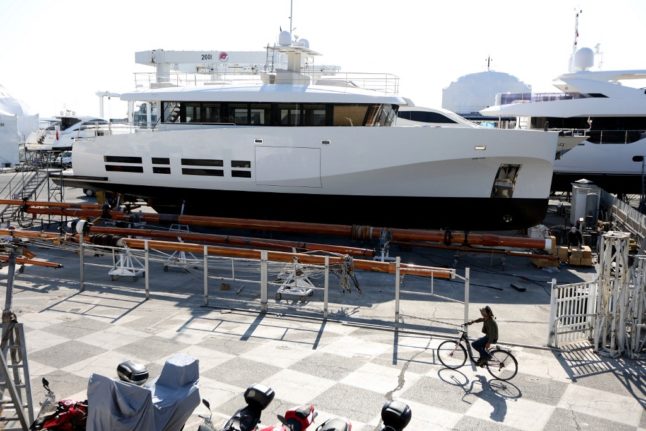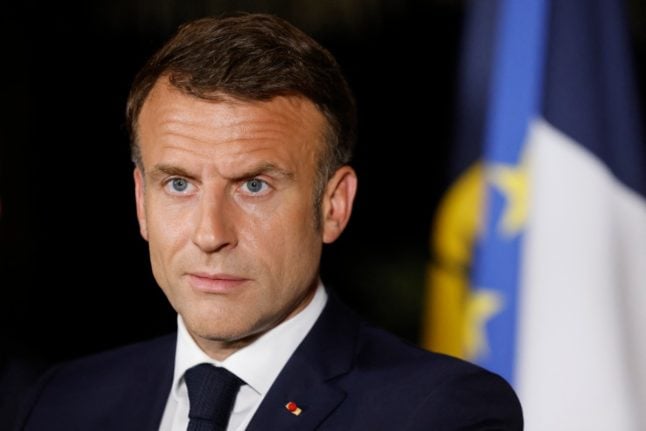According to a European Commission assessment (dated April 5th), France has seized or frozen almost €24 billion in Russian assets – making up more than 60 percent of the total assets seized or frozen in the EU (about €35 billion).
So why has France seized so much more than its neighbours?
Exclusive: EU document reveals the value of assets frozen under Russian sanctions per member state.
It reveals wide differences.
As of April 5:
France: ~€24bln
Belgium: €10bln
Ireland: ~€1bln
Italy: €1.1bln
Germany: €341,595
Hungary: "volume very low"https://t.co/TxzVcfMQ6j— Naomi O'Leary (@NaomiOhReally) April 21, 2022
Assets
Part of the explanation lies in the simple fact that France has a lot of areas that appeal to the super-rich, of all nationalities.
The “Bay of Billionaires,” located near Antibes along the Mediterranean, has been a playground for rich Russians since the fall of the Soviet Union. On the Atlantic coast, Biarritz is also a popular spot to buy a vacation home for Russian elites, including members of the Putin family.
And then of course there is Paris.
The capital city is a hot spot for tourism and real estate investment, and the wealthy from across the world enjoy buying property in the beautiful and historic city centre – especially the four central arrondissements. In 2018, so many of these properties remained vacant that these four districts merged into a single one for electoral purposes, as not enough people lived there at the time and local elections had become too small.
Cash reserves
But the seized €24 billion isn’t all made up of holiday homes, helicopters and yachts – a significant chunk of that is Russian central bank assets.
French finance minister Bruno Le Maire said that of the total, around €2 billion is made up of private assets such as mansions, yachts and helicopters, and the remaining €22 billion is Russian Central Bank reserves.
Russia’s central bank stores a large amount of its reserve abroad as an insurance policy, should it need to prop up the ruble or avert inflation. Roughly 12 percent of the Russian central bank’s assets are with France.
Then there’s yuan assets held in Russia’s foreign exchange reserves. About 13% of the reserves, or an estimated $77 billion, were in Chinese assets as of June 2021, according to the Bank of Russia. Selling those holdings would give Moscow much-needed liquidity pic.twitter.com/9GlyrWo2nG
— Giannoni S.A. (@GiannoniSA) March 1, 2022
READ ALSO: Côte d’Azur mansions, jets, yachts: What is France likely to seize from Russian oligarchs?
Financial assets are also represented in other countries’ seizure totals – for example, Belgium has reportedly frozen €10 billion in Russian assets, a significant chunk being frozen transactions normally made via the SWIFT international payment system, which is located in La Hulpe, outside Brussels.
Taskforce
But as well as having a lot of Russian assets in the country, France has also demonstrated strong political will when it comes to enforcing sanctions.
The government has created a taskforce – largely made up of customs officers and tax inspectors – to enforce sanctions. Before seizing property, the officers on the taskforce need to pick through the complicated web of shell companies and proxy ownership in order to establish what assets the oligarchs have.
The French Ministry of the Economy published a list of 41 properties owned by Russian oligarchs, and that list is expected to grow as more assets are discovered.
Currently, the majority of the properties on the list belong to just eight sanctioned billionaires.
Roman Abramovich is among the billionaires to make the naughty list – specifically via his €230 million Château de la Croë in Antibes on the French Riviera, where the former king Edward VIII lived after his abdication of the British crown and contentious marriage to Wallis Simpson.
Jérôme Fournel, the director general of public finance, told French daily The Parisian, that the taskforce does this via the several different files at its disposal, including the Ficoba registry (national file of bank and similar accounts), which lists in great detail all current accounts, savings accounts, securities accounts and safety deposit boxes opened in France.
The taskforce also works to map oligarchs’ assets and untangle sometimes complex financial arrangements.
Then, they access real estate dossiers, and as soon as an apartment or a villa belonging to one of the people on the list is identified, they instantly update the list. They quickly alert notaries to flag properties that cannot be sold or rented. For the moment however, the total number of oligarchs with property in France, as well as the total value of such properties has not been published.
The sanctions list continues to grow: now almost 900 people are on the list following the “atrocities committed in Bucha.” As the list expands, so too will the workload of the French taskforce.



 Please whitelist us to continue reading.
Please whitelist us to continue reading.
Member comments